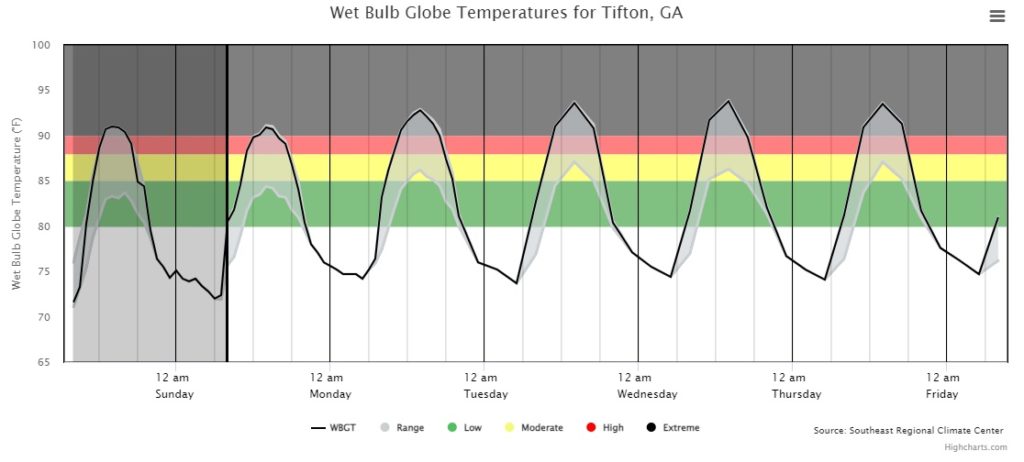This week is expected to be hot and humid across most of the Southeast. So hot and humid that it can be dangerous to do outdoor activities such as field work and exercise without taking proper precautions to keep from getting heat illnesses that can be life-threatening. Scientists use Wet Bulb Globe Temperature to determine how bad conditions are likely to be for outdoor activities. The WBGT takes into account temperature, humidity, wind speed, and the intensity of sunlight (including sun angle and cloud cover). If you are doing outdoor activities, you should monitor WBGT for your area to determine what the likely impacts of the sultry conditions are, including how often you should take water breaks or if you should put off activities like field work or sports or marching band practices until a cooler time.
Here is a great site for monitoring and predicting WBGT across the eastern US: Wet Bulb Globe Temperature (WBGT) Tool – Convergence of Climate-Health-Vulnerabilities (unc.edu). It includes a description of what WBGT is, how different values of WBGT require different amounts of hydration and breaks from exertion in the shade, and when to stop outdoor activities altogether. It also gives a forecast for the next five days to see when the WBGT is expected to be in the dangerous range for a location of your choice. On the UGA Weather Network page, we also list the current WBGT for each Georgia station on the Current Conditions page for each station.
Heat illnesses are not a joke, and even the toughest men and women can be stricken or in rare cases, even killed, by working too hard in hot and humid conditions, so this week and later this summer when it gets hot again, drink a lot of water and take frequent breaks in the shade to protect yourself, and make sure that your colleagues, workers, and students do too.
